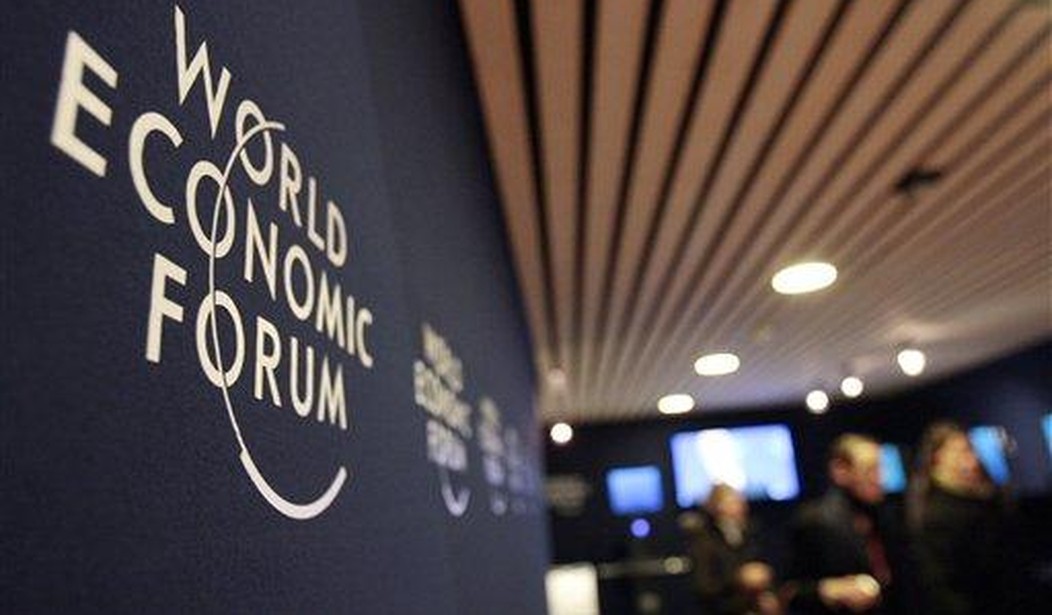The 2023 World Economic Forum (WEF) Annual Meeting in Davos has been heavily covered, for good reason. Beyond providing a physical meeting location for the world’s political, economic, and technocratic elite to execute their Great Reset of the entire planet’s social and economic infrastructure, the annual summit also provides a plethora of amusing and hypocritical elements that can be—and have been—endlessly panned by critics around the world.
For instance: the substantial utilization of private jets that caused carbon dioxide emissions equivalent to 350,000 cars in one week (2022 numbers); the behind-the-scenes drama surrounding WEF Chairman and CEO Klaus Schwab’s succession planning; the heavy use of prostitutes by meeting attendees, Al Gore blowing a gasket and threatening the world with “rain bombs”; and John Kerry’s admission that he and his friends have an “extraterrestrial plan” to save the planet, among many other highlights.
More serious topics were discussed ad nauseam as well, such as the future of artificial intelligence and the metaverse, combating “disinformation,” ensuring food security, strengthening diplomatic ties in the face of Europe’s largest land war since World War II, promoting social justice, et cetera.
Yet, one highly concerning piece of information has flown relatively under the radar, as revealed during a panel called “Stewarding Responsible Capitalism.” The discussion centered around environmental, social, and governance (ESG) scores, and how ESG’s creators are doubling down in the face of recent staunch resistance.
As a brief refresher, ESG scores are the chief mechanism by which a cabal of elites and supranational organizations are blatantly attempting to reset the global financial system to their advantage, by fundamentally altering traditional methods of financial risk assessment.
Recommended
Essentially, ESG operates by coercing companies into adherence with politically motivated, subjective, and non-financial metrics assessing an organization’s commitment to mitigating climate change and social justice issues. Companies that refuse to comply die on the vine, suffering from reduced or altogether eliminated access to capital and credit. Companies that are deemed compliant are rewarded handsomely for their cooperation. Ultimately, the full institutionalization of ESG would represent a major step towards a unitary governance model, which would dissolve free markets, erode national sovereignty, and drastically reduce individual liberties.
The aforementioned panel indicates full institutionalization will arrive in just four months. And, the plan is to force it upon every corporation and small business on the planet.
As I warned after last year’s meeting, ESG’s creators have been rapidly developing an ambitious unitary ESG model that will consolidate all existing models under the direction of the International Sustainability Standards Board (ISSB). In the panel’s opening minutes, Erkki Liikanen—Chairman of the International Financial Reporting Standards (IFRS) Foundation, which governs the ISSB—revealed that the ISSB “is now established, fully operational, and is actually meeting today…now the sustainability standards board is working towards the final form [of ESG standardization]. The aim is very completely that they would be able to publish, and adopt, and issue defining standards by mid this year, which means in June.”
According to Liikanen, ISSB offices have been ensconced in nearly all major jurisdictions, including the United States, Canada, the European Union, the United Kingdom, Japan, and China.
Fellow panelist and Bank of America Chairman and CEO Brian Moynihan was more direct, expressing that “we don’t want [disclosure] to be unofficial. We want it to be official…and then frankly, an investment manager, a consumer, society, others, can sit there and say: here’s a line that is acceptable…If you’re below it, we shouldn’t do business with you.”
This is a very important admission. In the United States, ESG disclosures are currently voluntary, though there is pressure on the SEC to make them mandatory. Under the ISSB, disclosures would be mandatory, and the ISSB’s jurisdiction would theoretically envelop the United States.
Further, the panelists make clear this is no longer an effort aimed primarily at large, multinational corporations—they are coming for small businesses as well. When asked by the panel moderator how small and medium-sized businesses could be brought into the ESG fold, Moynihan replied: “That’s why you had to go away from informal standard setting and other things to make it part of the official accounting practice…because once you do that then everybody is subject to it… so a net-zero commitment by a big company will drive the supply chain, but if they don’t have to disclose it, they can hide for a while… this doesn’t let you do that.”
Basically, Moynihan and his elites intend to force small companies into compliance via top-down pressure; if small companies do not get in line, they will be removed from supply chains and ultimately rendered defunct.
Perhaps the most glaring illustration of the confidence with which these elites are operating came when the moderator asked whether recent anti-ESG pushback in the United States was cause for concern.
Moynihan smugly answered: “No, because our companies have been around for almost 240 years…these great institutions we all sit behind, they will be here through government and changes…the politics ebb and flow…”
Apparently, Moynihan and his fellow oligarchs believe themselves above democratic processes. And, until very recently, he has been right; they have been largely operating beneath the scrutiny of elected officials. Now that democratic institutions are involved, ESG’s overseers believe they can succeed in the face of that threat.
We must prove them wrong, by enacting anti-ESG legislation at the state—and eventually, federal—levels of government, while educating as much of the public as possible about the dangers of such a system. Though nearly all anti-ESG legislation has been sponsored by Republicans, such an initiative should not be framed as yet another partisan debate. This is not a war between conservative and liberal ideologies. It is a war of freedom versus tyranny. Anyone who believes in democracy and individual freedoms—be they Republicans, Democrats, or Independents—must join the fight to put ESG where it belongs, in the ash heap of history.
Jack McPherrin (jmcpherrin@heartland.org) is research editor at The Heartland Institute.
























Join the conversation as a VIP Member